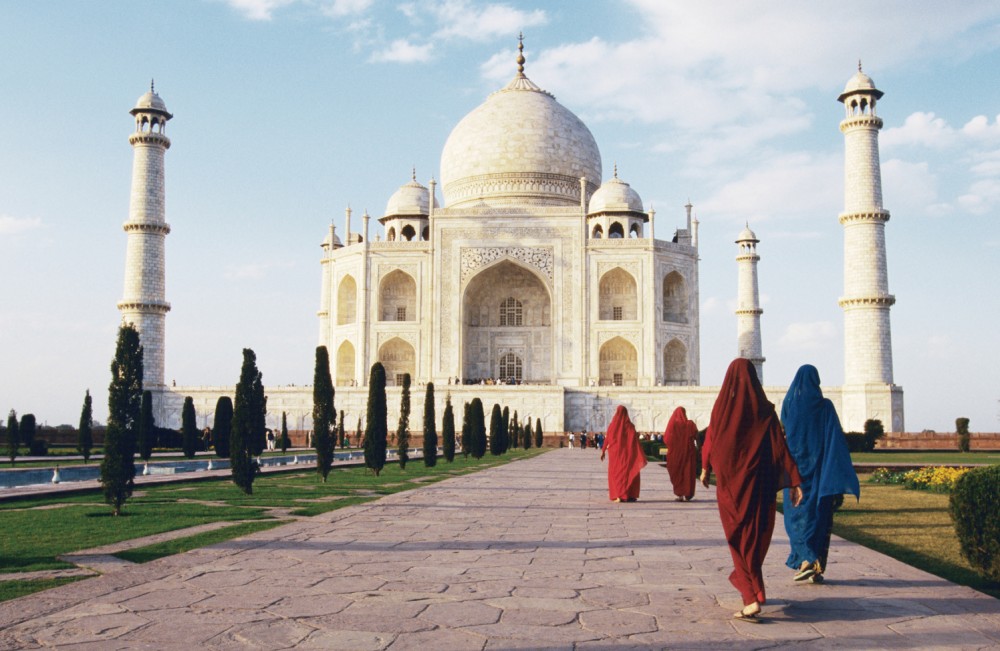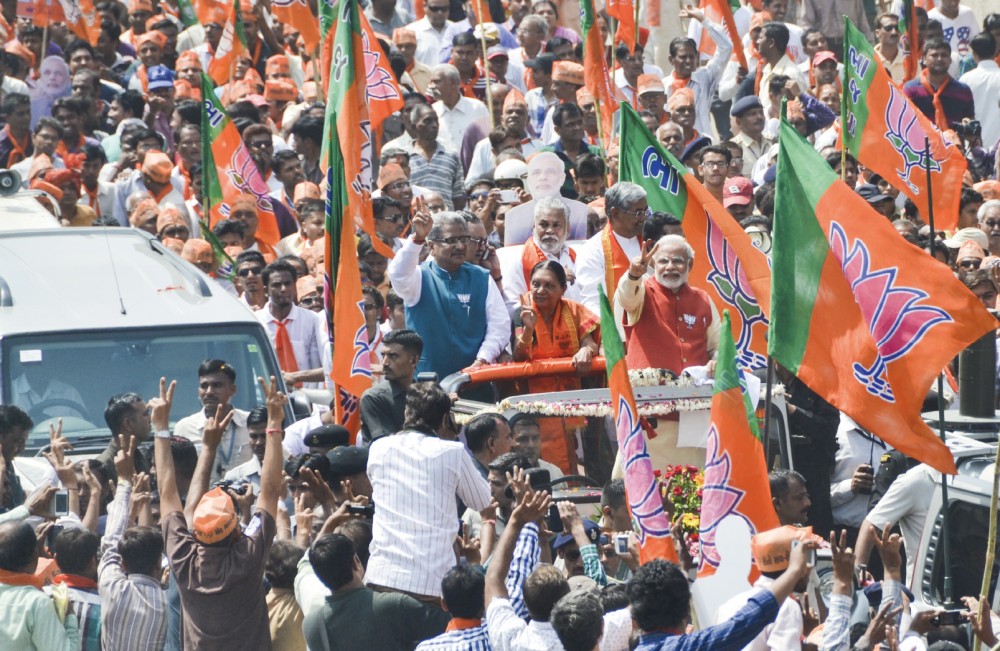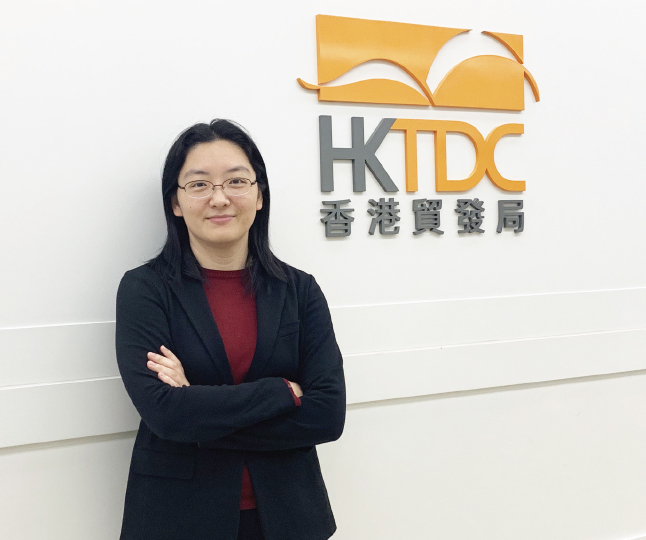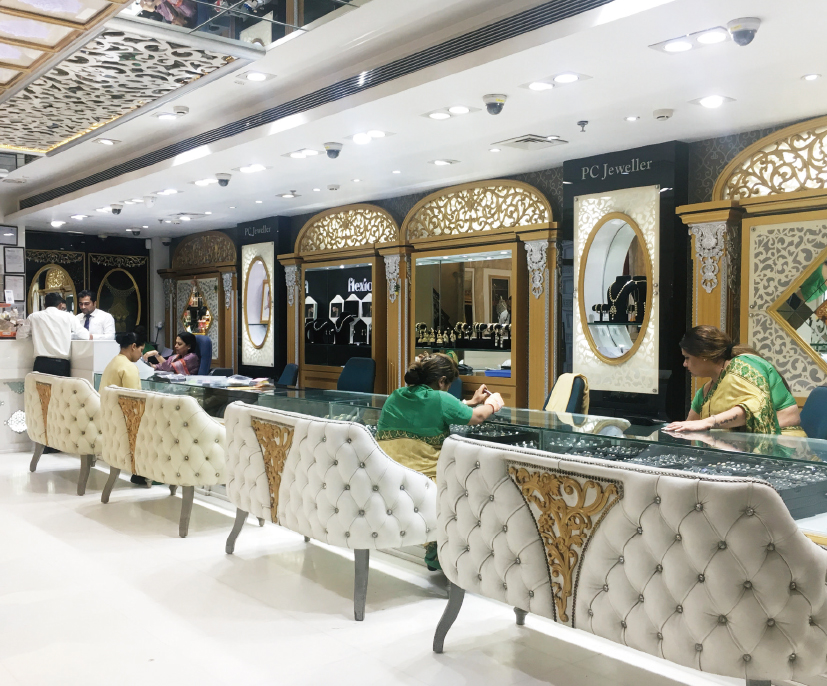India’s general election is currently being held in seven phases from April to May 2019 to constitute the 17th Lok Sabha. It is widely considered a referendum on Indian Prime Minister Modi, whose success or failure in being re-elected would have far-reaching implications for India’s social and economic development, as well as for India's diplomatic relations with the Asia-Pacific region, particularly with China.

Simon Shen: India’s Political Situation does not Hinder China-India Economic and Trade C ooperation
Religious conflicts and lynching have increased dramatically since Modi took office more than four years ago. The growing discontent among Muslims, Dalits and peasants against Modi, coupled with the announcement of the “anti-Modi alliance” in Kolkata by 23 local parties in India this January, suggest that Modi’s re-election seems to be facing the challenges of all parties. In addition, Rahul Gandhi, the current chairman of the Indian National Congress (INC), is seen as Modi's main opponent in this election.
Modinomics is a failure
 Indian Prime Minister Modi’s political track record has indeed been disappointing. Simon Shen, Co-Director International Affairs Research Centre of the Hong Kong Institute of Asia-Pacific Studies at the Chinese University of Hong Kong, pointed out that two key policies of Modinomics, which has not worked as well as publicized, even backfired. “In November 2016, the Modi administration suddenly announced the abolition of old banknotes with a face value of 500 and 1,000 rupees overnight, immediately triggering a rush by the public to the banks to exchange for new banknotes, thus causing mass chaos and clashes. Furthermore, fake banknotes appeared on the market shortly after the new banknotes were issued.”
Indian Prime Minister Modi’s political track record has indeed been disappointing. Simon Shen, Co-Director International Affairs Research Centre of the Hong Kong Institute of Asia-Pacific Studies at the Chinese University of Hong Kong, pointed out that two key policies of Modinomics, which has not worked as well as publicized, even backfired. “In November 2016, the Modi administration suddenly announced the abolition of old banknotes with a face value of 500 and 1,000 rupees overnight, immediately triggering a rush by the public to the banks to exchange for new banknotes, thus causing mass chaos and clashes. Furthermore, fake banknotes appeared on the market shortly after the new banknotes were issued.”
The tax reform that came into effect in July 2017 was another policy that caused disruption to the public. Shen noted that this reform of replacing multiple local taxes with a unified national Goods and Services Tax (GST) not only did not bring convenience to businesses, but also caused frustration among businesses due to cumbersome administrative procedures and frequently delayed tax refund schemes.
Nevertheless, in Shen’s view, economic performance has a limited impact on Modi’s re-election. Because Modi is a populist leader, publicity has more influence than political record, and based on his past popularity in India, his odds of success are always high.
Unity of anti-Modi alliance is questionable
 Shen said that it is debatable whether the anti-Modi alliance is adequately united, particularly coordination among them will be difficult when they are faced with conflicts of interests during the election battle. “Modi’s main rival, Gandhi of the INC, did not attend the alliance’s pep rally, while the opposition parties appeared reluctant to over-hype him as the leader.”
Shen said that it is debatable whether the anti-Modi alliance is adequately united, particularly coordination among them will be difficult when they are faced with conflicts of interests during the election battle. “Modi’s main rival, Gandhi of the INC, did not attend the alliance’s pep rally, while the opposition parties appeared reluctant to over-hype him as the leader.”
In fact, Gandhi’s candidature in the Wayanad Lok Sabha constituency in northeast Kerala, which is governed by the Communist Party of India (Marxist) (abbreviated CPI(M)) of the same coalition, has caused unhappiness among the CPI(M). “The head of Kerala, a member of the CPI(M), pointed out that neoliberal policies were not introduced to India by the Bharatiya Janata Party (BJP), but by the INC when it was previously in power. He also mentioned that the INC government had attempted to implement an ecological consultant’s report in 2011 to evict farmers living in remote jungle areas. “Although INC, as a centre-left party, is able to package itself as a representative of the working class and the poor, Shen pointed out that it does not seem to fully exploit this advantage.
India and China have common economic interests
How will Modi’s re-election or Gandhi’s assumption of office impact the international political landscape? Shen said that as evidenced by Modi’s political record during his tenure, he pursued nationalism internally and multilateralizm externally. In recent years, Modi has joined forces with the US, Japan and Australia to promote the Indo-Pacific Strategy (IPS), which is seen as a countermeasure to China’s “Belt and Road Initiative” (B&R). However, India is unwilling to participate in the IPS’s strategic and military components, which also leaves some room for manoeuvring. India has not joined the B&R. Besides giving support to the US, it has taken a greater interest in upholding its sovereignty in order to live up to its commitment to India’s right-wing nationalists.
In fact, excepting the B&R, India and China do not have much disagreement on other trade cooperation. Shen said that the two countries share many common or similar economic interests, and have worked closely on platforms such as the BRICS and AIIB. “India’s export of agricultural products to China may be a solution to the oversupply of agricultural products, thus alleviating its farmers’ discontent: Last June, India and China signed an agreement to allow India to export non-basmati rice to China and last November, the Indian Ministry of Commerce confirmed that the two countries signed their first raw sugar trade contract. The strength of bilateral economic relations between China and India actually far exceeds the imagination of nationalists on both sides.”
Populism setting the tone for Indian diplomacy
As for Gandhi’s diplomatic orientation, Shen believed that it is nothing but a fight against terrorism to contribute to regional stability. However, his relationship with China had caused much controversy in Indian public opinion in recent months. “Earlier this year, Gandhi revealed that he met with several Chinese officials during his visit to Tibet and in 2017, during the Donglang confrontation, he was slammed by the BJP for meeting with Chinese diplomats stationed in India, all of which were the targets of the BJP’s attacks.”
Shen said that it remains to be seen whether Gandhi’s stance is pro-China, but the BJP used this to attack and labelled Gandhi as China’s propagandist, which shows that India-China issues are very sensitive in India. In fact, even if Gandhi is elected, it is still impossible to change the INC’s traditional diplomatic stance of the past, while Modi’s populist style in recent years and the nationalist tendencies of India’s domestic media have long set the tone for India’s diplomacy.
Shen predicts that if Modi is re-elected, he will most likely continue his nationalist diplomacy, and overall economic growth figures should be sustainable. Even if the benefits are unevenly distributed, economic problems can be shifted by diplomatic means. On the other hand, if Gandhi is elected, it would be difficult for him to deviate from the nationalist route. At present, Gandhi is committing to large-scale welfarism to win votes, which does not please the business community. Shen believes that Modi’s chances of re-election are high.
With regard to the international landscape, Shen believes that India will make further use of the B&R and the IPS, because both will require India as a key location to compete with each other, to further expand its influence in the region and may strengthen control over its neighbours such as Sri Lanka and Maldives, which will inevitably conflict with China. “However, China will do its best to establish economic relations with other major countries in response to the US trade war. Regardless of who comes to power, nationalistic sentiments will likely remain at the surface, but economic cooperation will be relatively smooth.”

Wenda Ma: Continuation of Existing Policies for Made in India
 Since taking office four years ago, Narendra Modi, India’s incumbent prime minister and the driving force behind the “Made in India” initiative, has introduced several revolutionary changes, such as banknote demonetization and tax reform, which aroused widespread repercussions. Wenda Ma, Assistant Principal Economist (Asian and Emerging Markets) of the HKTDC, who visited India earlier, noted that the local business community she met generally expected Modi will be re-elected and continue his effective economic policies to help India improve its overall competitiveness and become a major Asian manufacturing hub.
Since taking office four years ago, Narendra Modi, India’s incumbent prime minister and the driving force behind the “Made in India” initiative, has introduced several revolutionary changes, such as banknote demonetization and tax reform, which aroused widespread repercussions. Wenda Ma, Assistant Principal Economist (Asian and Emerging Markets) of the HKTDC, who visited India earlier, noted that the local business community she met generally expected Modi will be re-elected and continue his effective economic policies to help India improve its overall competitiveness and become a major Asian manufacturing hub.
India has a population of over 1.3 billion. Ma said that Modi had been actively promoting India’s industrial development since taking office, with special attention on electrical appliances and electronic products. He wants to gradually shift the economic focus from rural areas to factories to continuously expand the country’s middle class. If Modi is re-elected and continue his effective economic policies, India is expected to retain its attraction for foreign investment and enjoy the economic fruits brought about by demographic dividend.
Tax incentives to encourage foreign investments
“Modi has introduced several reforms over the past four years, with some provoking criticism while others receiving positive responses. Of these, tax reform has received the most attention. For example, he raised the import custom duties on finished goods and put in place tax incentives for semi-finished goods in recent years, with the aim of encouraging more international companies to set up factories in India and relocate some of their production processes or even their entire manufacturing process to the country, so that the objectives of the ‘Made in India’ initiative can be steadily achieved.” Ma added that Modi has revolutionized and consolidated the country’s chaotic tax system and introduced a unified Goods and Services Tax in 2017 to further boost overseas investors’ confidence.
As a federal constitutional republic consisting of 29 states and 7 union territories, India had a wide variety of taxes imposed by the central and lower-level governments, which was extremely inconvenient for business dealings and particularly confusing for foreign investors. According to Ma, Modi hopes to replace the dozen or so federal and local taxes with a single tax system through the GST.
Tax reform starting to bear fruit
 “This massive tax reform had caused much mayhem, and some opposition said that there are still different tax rates after the reform, which is still too complicated.” Nevertheless, Ma pointed out that the tax reform has gradually produced positive effects. Besides an increase in government tax revenues, a more significant effect is that all local governments have stopped collecting local custom duties and consumption taxes, which has significantly reduced the administrative costs of businesses and greatly boosted the operational efficiency of enterprises as a whole.
“This massive tax reform had caused much mayhem, and some opposition said that there are still different tax rates after the reform, which is still too complicated.” Nevertheless, Ma pointed out that the tax reform has gradually produced positive effects. Besides an increase in government tax revenues, a more significant effect is that all local governments have stopped collecting local custom duties and consumption taxes, which has significantly reduced the administrative costs of businesses and greatly boosted the operational efficiency of enterprises as a whole.
India, which previously relied on agriculture as its main economic lifeline, was often affected by climatic factors. Ma pointed out that Modi’s “Made in India” initiative to give a huge boost to industrial development will undoubtedly shift focus away from climate-influenced agriculture, making the Indian economy more diversified. “The local business community that we met share roughly the same views on India’s elections. They agree that if Modi is re-elected and the aforesaid policies continue, there will be a certain degree of continuity, which will be more positive for India’s overall economic development.”
Made in India and beneficial to Hong Kong
Referring to India’s trade dealings with Hong Kong, Ma cited that the two sides have established close trade relations over the years. In 2018, India was Hong Kong’s seventh largest trading partner and third largest export market, recording nearly USD29 billion in trade, while Hong Kong’s total exports to India were close to USD17.2 billion. “With the ongoing ‘Made in India’ initiative, it is expected that local demands for related raw materials, semi-finished goods and machinery will continue to increase. I believe that trade between India and other Asian countries will grow, and Hong Kong’s role as Asia’s trade and distribution hub will become more obvious. On the other hand, Hong Kong signed the Comprehensive Avoidance of Double Taxation Agreement with India last year, which will actively help promote investment between the two places.”




